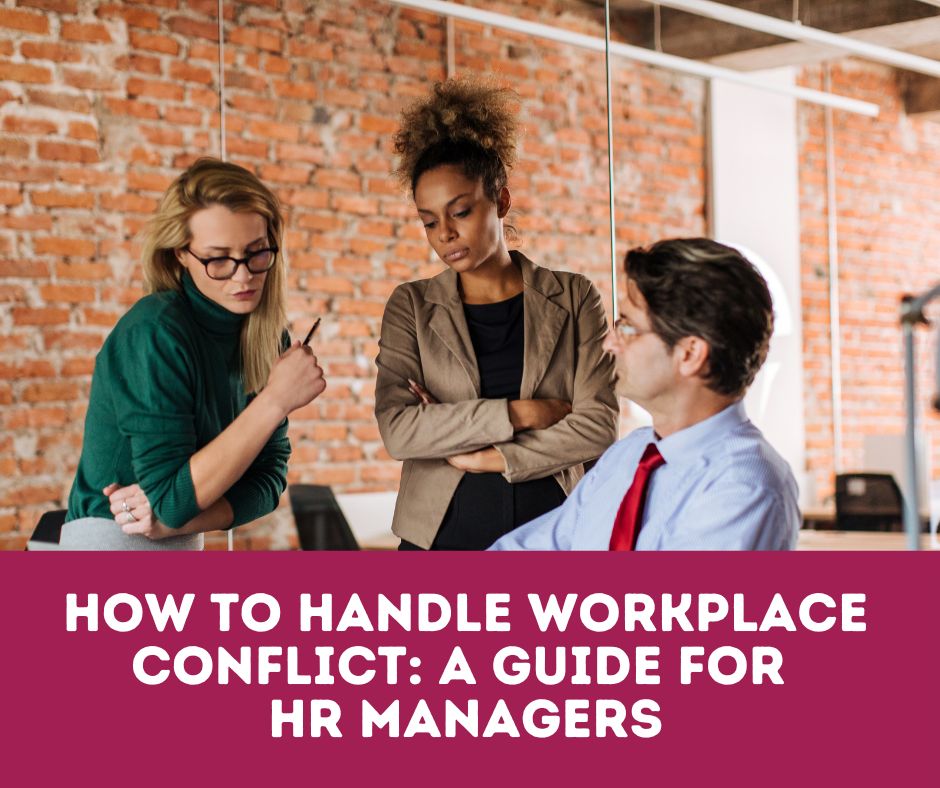How to Handle Workplace Conflict: A Guide for HR Managers

By Nicole Swaine
Conflict in the workplace is inevitable. When managed effectively, it can lead to growth, innovation, and stronger teams. However, unresolved conflict can impact morale, productivity, and even employee retention. As an HR manager, it is your role to facilitate resolution in a way that fosters a positive workplace culture.
Here’s a structured approach to handling workplace conflict:
1. Identify the Root Cause
Understanding the core issue is crucial. Conflict can stem from misunderstandings, differing work styles, misaligned expectations, or personal grievances. Take the time to assess the situation by gathering information from all parties involved.
2. Encourage Open Communication
Create a safe space where employees feel comfortable discussing their concerns. Encourage active listening, where each party acknowledges the other’s perspective before responding. Neutral facilitation from HR can help ensure a productive discussion.
3. Stay Neutral and Professional
As an HR professional, it is important to remain impartial. Avoid taking sides and focus on the facts rather than emotions. Your role is to mediate and guide employees toward a constructive resolution.
4. Implement Conflict Resolution Strategies
Depending on the nature of the conflict, different approaches may be necessary:
- Mediation: Bringing in a neutral third party to help facilitate discussions.
- Collaborative Problem-Solving: Encouraging employees to work together on finding mutually beneficial solutions.
- Compromise: Helping both sides find common ground where each party concedes slightly to reach an agreement.
5. Document Everything
Keep records of all conversations, agreements, and action plans related to the conflict. Proper documentation helps protect the company and employees in case further action is needed.
6. Follow Up and Provide Support
Conflict resolution doesn’t end after a discussion. Follow up with the employees involved to ensure that agreements are being honoured and that the workplace remains a positive environment.
7. Develop Preventative Measures
- Establish clear policies on workplace behaviour and dispute resolution.
- Provide training on effective communication and conflict resolution skills.
- Foster a culture of respect, inclusion, and teamwork.
When to Seek External Support
For complex conflicts involving legal risks, persistent tensions, or high-stakes employee relations issues, engaging an external HR consultant can provide an objective perspective and professional guidance.
Need expert assistance? Contact Explore Potential at info@explorepotential.com.au for professional HR support and conflict resolution strategies.
By taking a proactive and structured approach, HR managers can help maintain a harmonious workplace where employees feel valued and heard.
